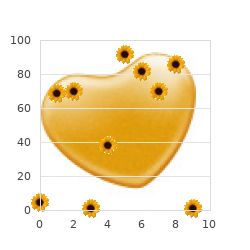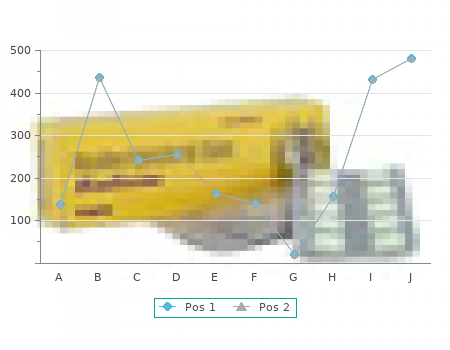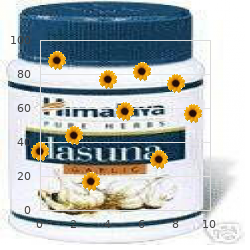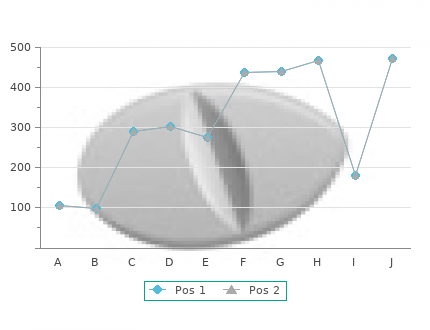|
Evista
By B. Luca. Cazenovia College.
As discount 60 mg evista otc elderly women's health issues, when we have the full discount evista 60mg with mastercard women's health clinic dallas, open pulse, indicating Veratrum; the hypochondriac fullness, umbilical pains, and sallowness of skin, indicating Nux Vomica; the bright eye, contracted pupil and flushed face, calling for Gelseminum; or the dull eye, immobile pupil tendency to drowsiness, which calls for Belladonna. In some cases the indication for a special remedy, like one of these, is so marked, that we give it alone, and it quickly cures most severe and obstinate diseases. I would like to continue this subject further, for it is one in which I am greatly interested, and I know it is one in which you are interested, but the shortness of our session will not permit further remarks. But when we come together another year, with another year’s experience, we may discuss it again. The practice of medicine is proverbially uncertain, not so much possibly as regards the termination of disease, as regards the influence of medicine to palliate or arrest it. Instead of making this uncertainty a cardinal doctrine, a belief in which is absolutely essential to regularity, it seems to me it would be profitable to examine it carefully, and by analysis determine the “elements of uncertainty;” we might then hope to determine the “elements of certainty,” and by a simple process of reasoning, avoid error and attain truth. The most important factor in “medical uncertainty,” is undoubtedly our present nosology. The element of uncertainty lies here, that a name employed to designate a disease, may cover the most diverse pathological states. The case of to-day, and the case of to-morrow, though justly called by the same name, may require a widely different treatment; the remedies employed successfully in one, would increase the disease in the other. Every one of our readers may draw the evidence of the truth of these propositions from his own practice. The second “element of uncertainty” we find in the doctrine of idiosyncrasy, which is also a cardinal article of faith. We are gravely taught that in medicine one of nature’s laws - that “like causes produce like effects,” is inoperative; and, on the contrary, “that no man can possibly tell from the action of a medicine on one, what will be its influence upon another. The third “element of uncertainty” lies in the application of the Latin motto, post hoc ergo propter hoc - that which follows a medicine must be due to its influence. If a man recovers from sickness after taking Podophyllin or Quinine, it is due to these agents, and he probably would not have gotten well without them. But there is this singular fact here: whilst physicians are willing to credit their remedies with all relief from suffering, improvement and restoration to health, they are not willing to reverse it, and concede increase of suffering, prolongation of disease and death to the remedies, though the sequence is quite as natural in the one case as the other. It does seem strange that physicians should have so thoroughly believed that medicine saved the lives of the sick, that without it the majority, or all, would have died. Even now when all this is proven beyond cavil, by some of the best observers, we find the majority won’t believe it; even if they concede it in theory, they deny it in practice. The fourth element of uncertainty lies in the endeavor to get direct results from indirect agencies. You want to influence the circulation and the temperature, and you give remedies which produce emesis or catharsis. You want to elect Greeley, and you whip your neighbor because he “rah’s” for Grant. The fifth element of uncertainty is the administration of remedies in poisonous instead of medicinal doses. It is true that the poisonous action may be known with some certainty, but its influence upon disease is very uncertain. The poisonous action sets up a new process of disease in so far as it changes structure and function, and it may be curative according to the law of substitution. A medicinal action we understand to be one that restores function, and thus removes disease. Give your remedy in medicinal doses, and then you may expect direct and positive results in the relief of disease. These are the principal elements of uncertainty in regular medicine and in our school. To these we might add a number of minor ones, among which is a belief in “special providences,” inscrutable or otherwise. Indeed any one who is inclined to shift his responsibility upon his Creator, and to believe that the laws of nature can be suspended from any providence, has all the elements of uncertainty with him. The principal element of uncertainty in Homœopathic medicine is the making of pain a principal symptom, and the treatment of symptoms in place of pathological conditions.

Close your eyes and this time notice if you’re H consciously and purposely producing your thoughts buy 60mg evista with visa women's health center vancouver wa. If you were generating your thoughts why wouldn’t you know what your next thought was going to be? Your thoughts are like a game of dominos generic 60 mg evista free shipping breast cancer 78 year old, one domino hitting another domino that then creates this train of thoughts. It’s as if the thoughts are being produced independently of any person behind them. What goes on in one thought, triggers a relationship to another thought that then presents itself. From your memory, the image triggers your history with and knowledge of, that type of bird. Something like the following internal conversation might take place: What a beautiful bird! It’s a real discovery to understand that, what’s on your mind is really just a flow of thoughts, each triggering the next, without any conscious activity, or sometimes even any real meaning, necessarily behind it. In response to an external or internal sensation, a thought arises, which triggers a memory of another event that then leads to a subsequent thought. Each thought is dependent on the preceding thought until a new sensation comes along. Thoughts are just reflections of a complex interplay between physiological and psychological activity and are based on your previous experiences and patterns. By recognizing that your thoughts actually occur independently, in a meandering and domino- like fashion, they should have less power over you. You can observe thought production as a process occurring outside of your conscious control, like your heartbeat, or your fingernail growth. Notice if there’s a connection between your thoughts and return to this chapter after H you’ve finished. We all have deeply embedded 20 • Mindfulness Medication memories of our experiences and there are multiple, unconscious, mental connections that occur between these memories. Practice In an attempt to train your mind to start becoming aware of the nature of your thoughts on a more regular basis, here are a few more exercises that I suggest you set some time aside to do every day. Whenever a thought arises and you’re consciously aware of it, simply note to yourself the word ‘thinking’. Take five to ten minutes in the morning before getting up, or in the evening before going to sleep, to observe your mind and its thoughts. Sometimes this exercise is harder to do if you’re tired but see what works best for you. Observe how your thoughts arise spontaneously, are often connected to the preceding thought and are impermanent in nature. Focus on the idea that ‘your thoughts are not you, they are just passing through’. Pick something that will serve as a cue for you that occurs during your average day and use it as a reminder to simply observe your thoughts for a moment before you act on them, just as you’ve been doing throughout this chapter. Your cue could be as simple as sitting down to eat a meal, getting ready to go for a walk, picking up your phone to make a call, going into the bathroom, sitting in your car for a moment before driving, whatever works for you. Stick a Post-it note up somewhere to remind you that it’s your intention to focus on your thoughts in that situation. In this Ichapter, I’m going to have you take a look at how these thoughts can link together habitually in what becomes your own personal belief system. A belief system is really just a pattern of stories that you have been taught or have learned since childhood, or that you have developed in response to your own experiences. It’s how you frame and understand the things that you encounter in the world around you. You have created a personal belief system about everything you have ever come across, every new discovery, every interaction and every activity, in order to fit things in with what you already know. You never just experience something without also experiencing the story that you then create about the event, based on your personal belief system. This is part of how one thought leads to another in patterns that tend to repeat themselves. It’s a normal part of your brain’s functioning to try to make sense of the world by relating new things to what you’re already familiar with.


Isabel the birth tenderly and with her annointed hands buy evista 60mg with mastercard menopause itchy skin, Hapgood) so that it may be reduced again to a natural birth purchase evista 60mg with visa women's health center ventura. Everybody knows how to bring up Letter to Dr David Hosack, August () other people’s children. Address at a Hernia Conference, Newport, Wales, May The Crown of Wild Olive () The work of science is to substitute facts for appearances, and demonstrations for impressions. If I were a medical man, I should prescribe a holiday to any patient who considered Saki (H. British novelist and short story writer The Autobiography of Bertrand Russell Vol. Oxford University Press, Oxford () Robert, Marquis of Salisbury – English statesman and author Frederick Saunders – Doctors are a social cement. The language of the men of medicine is a fearful Science : () concoction of sesquipedalian words, numbered by H. British Journal of Surgery : – () The physician that bringeth love and charity to the sick, if he be good and kind and learned and George Santayana – skilful, none can be better than he. Sayers – Science is nothing but developed perception, British crime writer interpreted intent, common sense rounded out If accidents happen and you are to blame, take and minutely articulated. Medical historian Santorio Santorio – Italian physician, Capodistria, and inventor of the clinical Integrity and rectitude in our profession are thermometer paramount. Archives of Internal Medicine : () Obviously this method I have discovered is of great importance, since it enables us to ascertain the precise amount of that insensible perspiration interference which, according to Hippocrates and Richard Schatzki –? The development of ideas of what constitutes a good death can even be Surgery is the endeavor where intellect and traced to prehistory. Oxford University Press, Oxford () Book Review of Stapling in Surgery · Béla Schick – Pain is a more terrible lord of mankind than even Austrian paediatrician death himself. Wolf) It is our duty to remember at all times and anew that medicine is not only a science, but also the Children are not simply micro-adults, but have art of letting our own individuality interact with their own specific problems. Wolf) Sir Walter Scott – First the patient, second the patient, third the Scottish author patient, fourth the patient, fifth the patient, and then maybe comes science. We first do everything There is no harder worker in all Scotland, and for the patient; science can wait, research can none more poorly requited, than the village wait. The practice of Professor of philosophy and author medicine is like heart muscle contraction – it’s all The hunt has run its course, and the fox will die. His death will be quick—quicker by far than the Aphorisms and Facetiae of Béla Schick ‘Early Years’ (I. Wolf) death of a mouse in the paws of a cat, of a rat in the jaws of a terrier or of a human in the hands of The physician’s best remedy is Tincture of Time! Yellow Jersey Press, London () Johann Christoph Friedrich von Frank Scully Schiller – You are not crippled at all unless your mind is in a German poet, philosopher, and physician splint. Bartlett’s Unfamiliar Quotations (Leonard Louis Levinson) All significant diseases, especially those issuing from a malignancy of the abdomen, are heralded Sir Harry Secombe – by a greater or lesser upheaval of personality. Welsh comedian and singer Prosaïsche Schriften (Erste Periode) My advice if you insist on slimming: Eat as much as you like—just don’t swallow it. Johann Lukas Schönlein – Attributed German-born Zurich physician We return to those foundations, to those pillars David Seegal –? Dover Publications, New York practice would find it difficult to single out a dull () (original W. Journal of the American Medical Association : () Albert Schweitzer – French Protestant theologian and medical missionary The involved student may thus come to appreciate that work, work, and more work plus a sense of Here, at whatever hour you come, you will find proportion will ease him over the unexpected and light and help and human kindness. Lambaréné Journal of Medical Education : () · The sound clinician attacks the core of the I was instantly struck with the close resemblance problem and avoids being mousetrapped by of the malady from which Kolletschka died to that tangential data. On the death of his friend the professor of Jurisprudence after being pricked by a needle during a post-mortem. The Pharos of Alpha Omega Alpha : () Aetiologie, Begriff und Prophylaxis der Kindbettfiebers The proper study of geriatrics begins with pediatrics. Journal of Pediatrics : () Progress in medical science depends chiefly on the Seneca c.

You can go days or weeks without food and a couple of days without water but only minutes without breathing 60 mg evista otc menstruation quran. You need oxygen to purify the bloodstream buy evista 60mg amex women's health clinic in oregon city, burn up waste products, and rejuvenate the body and mind. If you don’t get enough oxygen, your thinking becomes sluggish, your blood pressure rises, and your heart rate increases. You also get dizzy, shaky, and depressed, and eventually you lose consciousness and die. Many people react to stress with rapid, shallow breathing that throws off the desired ratio of oxygen to carbon dioxide in the blood. This phenomenon is called hyperventilation, and it causes a variety of distressing symptoms: ✓ Blurred vision ✓ Disorientation ✓ Jitteriness ✓ Loss of consciousness ✓ Muscle cramps ✓ Rapid pulse ✓ Tingling sensations in the extremities or face Anxiety and relaxation make for strange bedfellows Have you ever known two people who couldn’t accomplishment. Many show up at the same party, trouble is bound to psychologists believe that the techniques brew. They’re like oil and water — they just described in this chapter work because relax- don’t mix. Training yourself diligently in the use of relaxation skills Anxiety and relaxation are a little like that. Not an easy Chapter 11: Relaxation: The Five-Minute Solution 183 Hyperventilation frequently accompanies panic attacks as well as chronic anxiety. The symptoms of over-breathing feel like symptoms of anxiety, and people with anxiety disorders may hyperventilate. Therefore, finding out how to breathe properly is considered an effective tool for managing anxiety. Discovering your natural breathing pattern When you came into the world, unless you had a physical problem with your lungs, you probably breathed just fine. Unless they’re in distress from hunger or pain, they need no instruction in how to breathe or relax. The stresses of everyday life, however, have since meddled with your inborn, natural breathing response. Under stress, people usually breathe shallow and fast, or, sometimes, they don’t breathe at all. Some people hold their breath when they feel stressed and aren’t even aware that they’re doing it. Try noticing your breathing when you feel stressed, and see whether you’re a breath-holder or a rapid, shallow breather. If you’re breathing correctly, the hand on your stomach rises as you inhale and lowers as you exhale. The hand on your chest doesn’t move so much, and to the extent that it does, it should do so in tandem with the other hand. The odds are that if you have a problem with anxiety, your breathing could use a tuneup. Breathing like a baby Abdominal breathing involves breathing with your diaphragm — the muscle that lies between your abdominal cavity and your lung cavity. You may want to lie down, or you can do this while sitting as long as you have a large, comfort- able chair that you can stretch out in. Notice whether certain muscles feel tight, your breathing is shallow and rapid, you’re clenching your teeth, or you have other distressing feelings. Breathe in slowly through your nose, to a slow count of four, and fill the lower part of your lungs. Inhale the same way you did in Step 3, slowly through your nose to a slow count of four. Check out your body again for tension, and rate that tension on a scale of 1 to 10. We recommend that you do this abdominal breathing exercise at least once a day for five minutes, ten days in a row. For that matter, it isn’t difficult to do this four or five times each day — your gains will pile up more quickly. You’ll find it relaxing, and it won’t add stress to your day by taking away valuable time. After you do that, try noticing your breathing at various times during your regular rou- tine.
|

